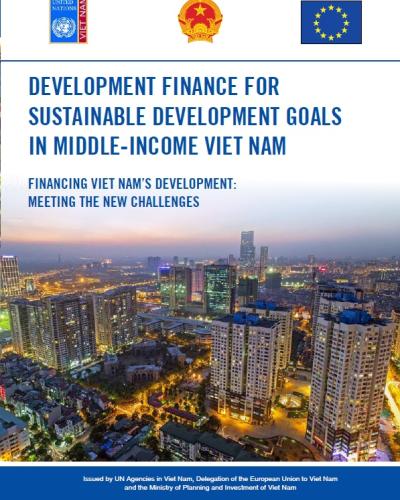Development finance for sustainable development goals in middle-income Viet Nam

Vietnam has entered into a challenging new phase in its national development. After two decades of rapid progress, the pace of economic growth and poverty reduction has fallen away. The Government of Vietnam (GoV) has recognised that it needs new strategies to maintain its growth as a Middle-Income Country (MIC).
Vietnam is also entering a new phase in its development cooperation. Over the past decade, Vietnam has been one of the top recipients of official development assistance (ODA) in the world. Yet other funding sources, including domestic revenues, public borrowing and foreign direct investment (FDI), have grown much more quickly, making ODA an increasingly minor part of the overall development finance picture. Now that Vietnam is a MIC, ODA flows will decrease and become less concessional in nature.
This Development Finance and Aid Assessment (DFAA) was commissioned by Vietnam’s Ministry of Planning and Investment (MPI), with support from UNDP and the European Union, to examine the changing development finance picture. It examines the various sources of development finance available to Vietnam, looking at how they have developed in recent years and their likely future trajectory. It assesses legal and institutional constraints on their mobilisation and effective use. It makes recommendations to the Government of Vietnam (GoV) and development partners on options for improving the complementarity of different sources of development finance, in keeping with the focus of the Busan Partnership for Effective Development Cooperation and the Vietnam Partnership Document on overall development effectiveness.





















